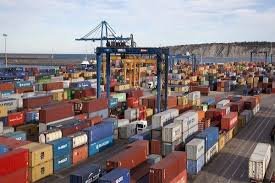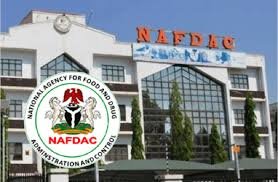Juliet Jacob delves into the ongoing NAFDAC strike, analyzing the workers’ grievances, management’s response, and the far-reaching implications for Nigerian businesses and public health, amid fears of compromised food and drug safety and economic instability.
NAFDAC Activities Paralyzed
The National Agency for Food and Drug Administration and Control (NAFDAC) was paralyzed by an indefinite strike launched by its workers. Sparked by grievances over poor welfare, unpaid allowances, and restrictive policies under Director-General Prof. Mojisola Adeyeye, the strike which lasted for three week, disrupted regulatory activities across Nigeria’s healthcare, logistics, and manufacturing sectors.
Workers’ Demands: Fair Pay, Fair Promotion, Fair Treatment
The strike was set in motion when a 14-day ultimatum issued by two prominent workers’ unions – the Senior Staff Association of Statutory Corporations and Government-Owned Companies (SSASCGOC) and the Medical and Health Workers Association – expired without resolution.
This has triggered the indefinite strike currently crippling the National Agency for Food and Drug Administration and Control (NAFDAC).
The unions, representing NAFDAC employees, had demanded improved staff welfare and working conditions, but management’s failure to address these concerns prompted the industrial action, bringing regulatory activities to a grinding halt and sparking concerns about public health and safety.
Arrears and Benefits
The demands include: payment of Arrears and Benefits: Both unions call for the payment of outstanding salary arrears dating back to 2022, as well as unpaid life insurance, burial expenses, and repatriation allowances. “The prompt payment of these arrears is crucial to maintaining staff morale and ensuring fair compensation,” said SSASCGOC.
Promotion Review
The workers are calling for an immediate re-evaluation of the recent promotion exams, which saw a pass rate of only 35%. They believed the mass failure was unprecedented and was deliberately orchestrated by the NAFDAC DG in order to deprive the members of additional salaries. They demand an 80% pass rate minimum and decry the current exams as “excessively academic and disconnected from staff responsibilities.”
Travel and Training Allowances
Staff members allege they are forced to personally finance work-related trips, facing delays in reimbursement. The unions insist that official travel expenses be fully covered by NAFDAC in advance. SSASCGOC further criticized the DG for revoking air travel for domestic official trips and instead mandating road travel, despite heightened security risks in the country.
Vacant Promotion Slots
The unions accuse the NAFDAC management of deliberately leaving promotion slots vacant, describing it as “detrimental to staff careers and motivation.”
Strict Adherence to Cadre-based Promotions: “Promotion exams should be fair and aligned with cadre-specific qualifications,” said a union representative, “yet management has allowed promotions that contravene these standards.”
Management’s Response: “Compliance with Rules”
Responding to the allegations, Prof. Adeyeye has defended the agency’s position, denying that NAFDAC has neglected workers’ welfare. She described the workers’ allegations as baseless.
Adeyeye insisted that “promotion quotas are determined by the Office of the Head of Service, not NAFDAC management.” She emphasized that NAFDAC conducts exams but only promotes within approved slots.
On the Travel and Estacode, she said, “Our staff have always been paid their due estacode once travel is verified. Any claim to the contrary is misleading.” Adding that, “We follow rules like any other agency.”
Financial Constraints
NAFDAC’s Director-General lamented a significant financial blow to the agency, citing a recent 50% deduction in its internally generated revenue by the federal government.

According to her, this drastic cut has severely impacted NAFDAC’s ability to fulfil critical financial obligations, potentially compromising its regulatory effectiveness and staff welfare.
The reduction comes at a time when the agency is already grappling with the financial implications of its ongoing strike, which has halted regulatory activities and disrupted healthcare delivery nationwide.
With its financial autonomy compromised, NAFDAC’s capacity to ensure meeting the demands of the striking workers is unrealistic, sparking concerns about the long-term consequences for public health and safety.
However, the union members argue that these responses sidestep the underlying issues. “Management should understand that these are human beings with families, yet the DG’s response remains distant and insensitive,” stated a union spokesperson.
Impact on Nigerian Businesses: A Financial and Logistical Gridlock
The strike has significantly disrupted businesses, particularly in the logistics and pharmaceutical sectors, where NAFDAC plays a critical regulatory role.
Ports Backlogs: “This strike has caused containers of regulated items—drugs, cosmetics, chemicals—to pile up at terminals, leading to extensive delays and increased costs,” said Olatoye Otubade, a clearing agent while lamenting the prolonged strike.

Daily charges for stranded containers accumulate, affecting both businesses and consumers as costs rise. “It’s frustrating; businesses bear the financial burden while NAFDAC remains unresponsive to our plight,” Otubade added.
Disrupted Inspections and Clearances
Seun, another agent, described the paralysis at the ports with a somber tone: “We can’t clear items without NAFDAC’s inspection. They’ve shut everything down, and it’s a huge loss for businesses.”
Potential Public Health Risks: A Looming Crisis
A prolonged strike by staff members of the National Agency for Food and Drug Administration and Control (NAFDAC) has brought regulatory activities to a grinding halt, sparking concerns among stakeholders about the potential risks to public health.
As the strike continues, experts warn that the absence of crucial oversight may allow substandard or harmful products to flood the Nigerian market, posing severe risks to consumers.
With NAFDAC’s quality control and monitoring functions suspended, stakeholders are sounding the alarm about the potential consequences, including increased cases of food poisoning, counterfeit medications, and other health hazards, emphasizing the urgent need for a resolution to restore the agency’s vital regulatory role.
Substandard Products
The strike has raised concerns about the potential influx of substandard or counterfeit products into the Nigerian market.
With regulatory oversight suspended, experts warn that consumers are now more vulnerable to harmful or fake food, drugs, and other consumable goods.
The strike, which has crippled NAFDAC’s quality control and monitoring functions, has created a window of opportunity for unscrupulous manufacturers and importers to flood the market with dangerous products, posing significant risks to public health and safety.

Stakeholders are urging swift resolution to the strike to prevent a potential health crisis.
“The absence of effective regulation could allow harmful products to reach consumers, posing a significant health risk,” cautioned a union leader.
National Health Security
The ongoing strike has not only crippled regulatory activities but also compromised Nigeria’s health security framework, leaving the country vulnerable to public health threats.

With quality control and monitoring functions suspended, the risk of counterfeit, substandard, and unregistered products entering the market increases, posing significant dangers to consumers.
Experts warn that this lapse in oversight undermines Nigeria’s ability to prevent and respond to health crises, including disease outbreaks and pandemics, further straining the country’s already overburdened healthcare system.
As the strike persists, concerns mount about long-term consequences for national health security and the well-being of Nigerians.
“If the strike persists, the regulatory vacuum could lead to crises with long-term repercussions on public health,” warned the Medical and Health Workers Union.
Medical Facilities’ Supply Chain
A crippling strike by National Agency for Food and Drug Administration and Control (NAFDAC) staff has sparked concerns about disruptions to healthcare delivery across Nigeria, as hospitals and clinics rely heavily on the agency’s timely approval of essential drugs and medical equipment.
With NAFDAC’s regulatory functions at a standstill, medical facilities face severe shortages of critical supplies, potentially compromising patient care and putting lives at risk.
The strike’s ripple effects are already being felt, with healthcare providers warning of impending stockouts and delays in procuring life-saving medications and equipment, ultimately threatening the stability of Nigeria’s healthcare system.
Calls for Federal Intervention
The NAFDAC strike has entered its second week, prompting urgent calls from unions for federal government intervention to prevent escalating health risks and economic losses.
The indefinite strike, which began on October 7, was sparked by employees’ concerns over poor welfare and promotions.
With the strike now in its 14th day, the unions are stressing the critical need for mediation to resume essential regulatory activities, ensuring the safety and quality of food, drugs, and medical equipment.
NAFDAC’s management has acknowledged efforts to address union demands but cited limitations in meeting all requirements.

As the standoff continues, healthcare delivery and economic stability hang in the balance, underscoring the imperative for swift resolution.
NAFDAC’s Resident Media Consultant, Sayo Akintola, confirmed that efforts are underway at the ministerial level to address the impasse.
“We’re aware of the economic and health risks; the union must consider its impact on the public,” Akintola appealed, adding that some of the union’s demands have already been forwarded to the Head of Service.
The Cost of Indifference
The ongoing standoff has reached a critical point, with the agency’s mission to protect public health and Nigeria’s economic stability hanging precariously in the balance.
As the impasse continues, unions insist that basic welfare standards and fair treatment for employees must be prioritized, while management cites adherence to regulations.
With each passing day, the need for a resolution becomes increasingly urgent, as Nigerian businesses and the general public bear the brunt of this prolonged crisis.
The situation echoes concerns raised during the 2024 Nigerian general strike, where labour unions demanded better working conditions and a higher minimum wage to combat the country’s cost-of-living crisis.

As the stalemate persists, experts warn of potential risks to public health and economic instability, underscoring the imperative for swift and constructive dialogue to resolve the dispute.
Time will tell whether the regulatory agency will yield to the demands of the workers.



